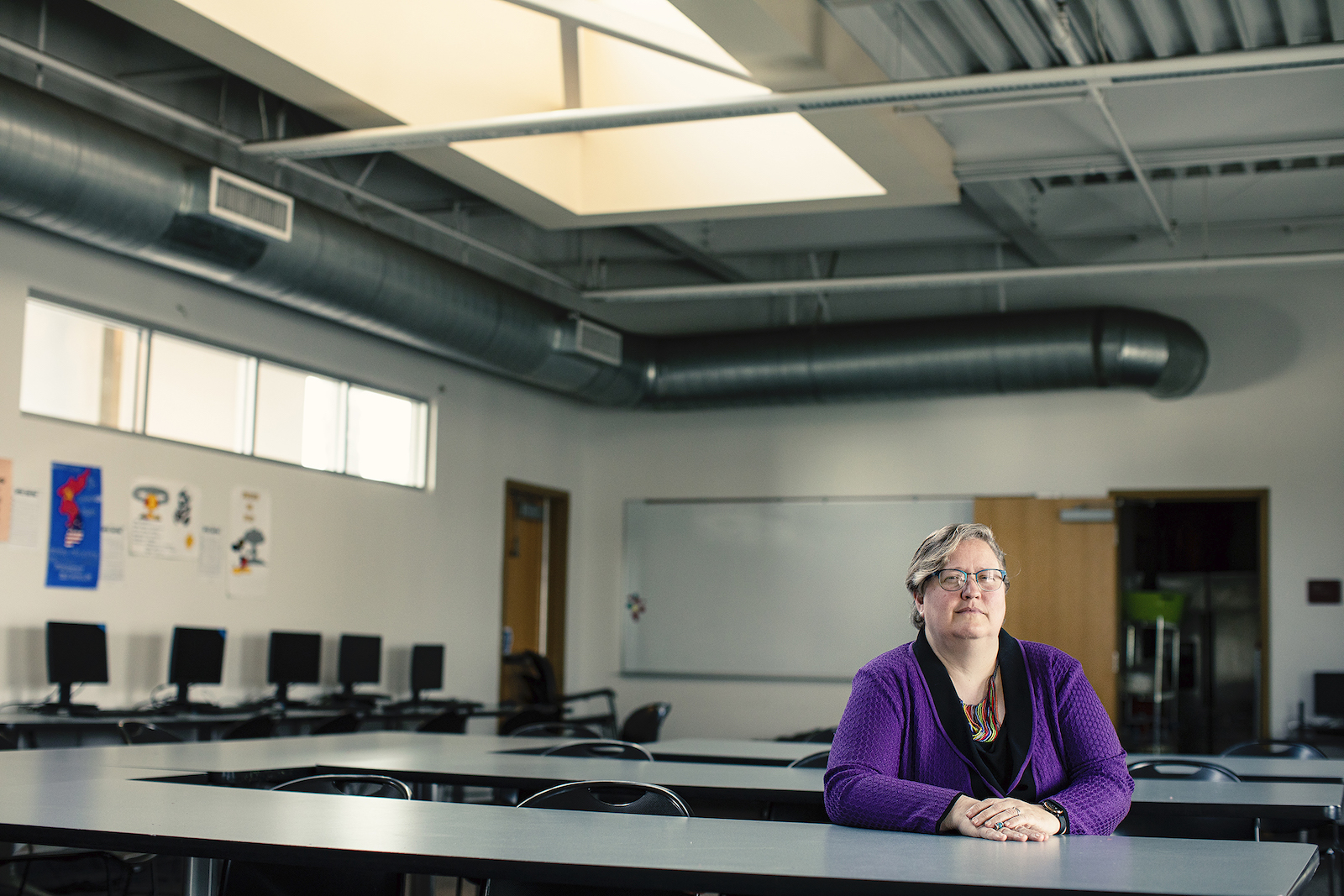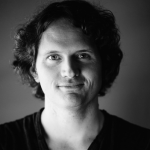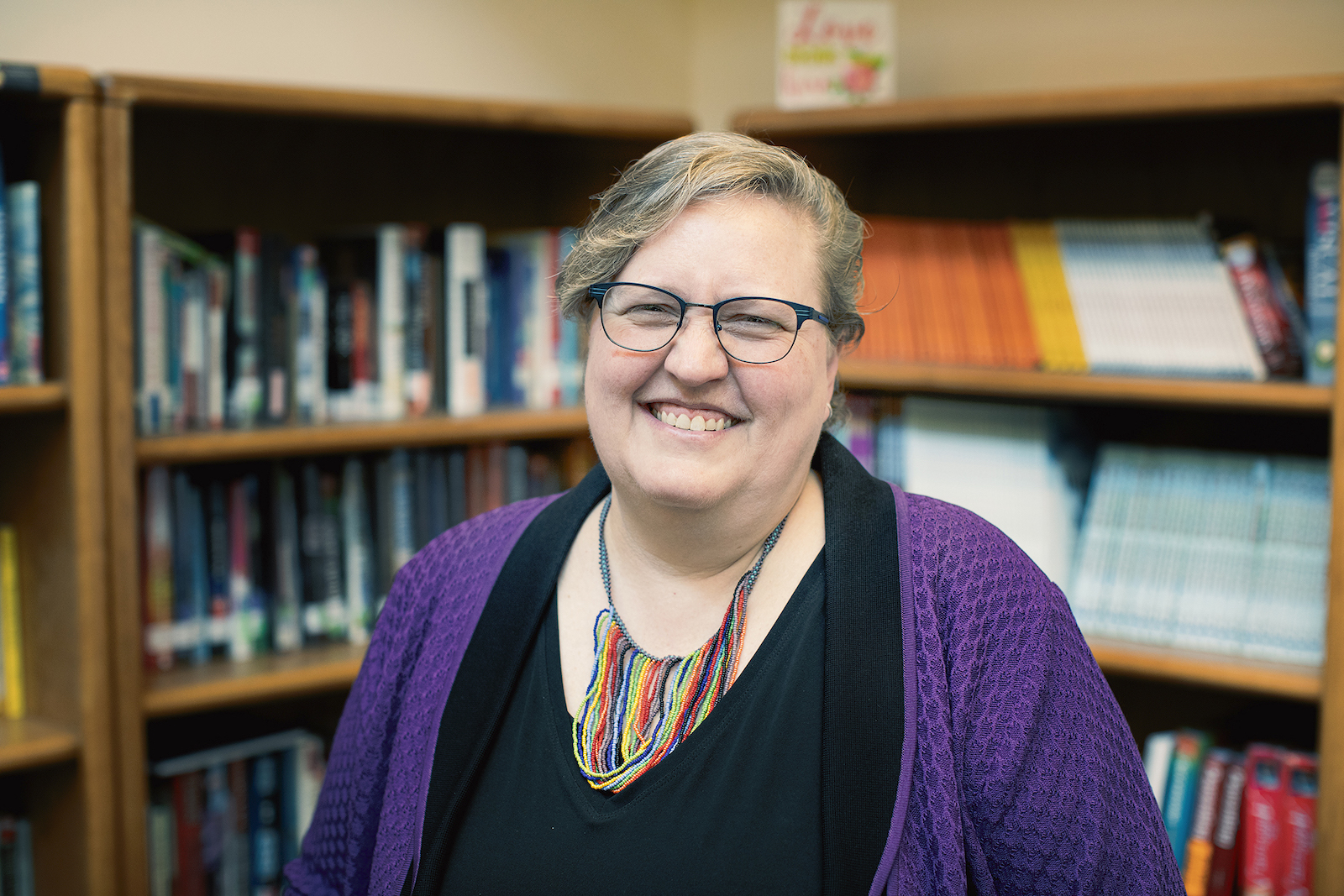
In august of 2019, Kimberly Medendorp (MAT ’95) stood on a stage at the Pitchess Detention Center near Santa Clarita, California, and addressed a group of 26 inmates. It was a graduation ceremony, and the inmates were students of Five Keys, a fully accredited charter high school where Kimberly serves as principal. Surrounded by their proud family members and friends, the men who were graduating that day received Kimberly’s commendations. “We know it was not always easy,” she said from a podium adorned with a large gold sheriff star. “We are so proud of your accomplishments.”
This particular graduation ceremony held special significance as the program’s 500th graduate crossed the stage since the program was introduced at Pitchess in 2012. Founded by the San Francisco Sheriff’s Department in 2003 to help incarcerated individuals earn high school diplomas, Five Keys serves about 25,000 people every year across seven California counties with its academic, vocational, and counseling programs. Like most high school principals, Kimberly oversees teachers who work to provide their students with the knowledge, skills, and tools necessary to enter society successfully. Except in this case, those students may be older than their principal and are likely to see Five Keys as an exercise in hope, rather than an unwelcome disruption to their social lives.
“The reason I started this program is I wanted to do something better with my life and make my family proud,” said graduate David Enriquez in an interview with a local news station after the ceremony.1 “It feels like a dream come true. I never thought I would get my high school diploma, and 19 years later, I got it, and I’m proud of myself.”
Kimberly came into the position at Five Keys after several years at the Peace and Justice Academy in Pasadena, a secondary school she cofounded. Influenced by the Mennonite tradition Kimberly was introduced to during her time at Fuller, she built into the curriculum the theory of restorative justice, familiarizing the students with its values: peaceful social life, respect, solidarity, and active responsibility. By studying and practicing these values, the students could imagine how they might put their faith into action in working for social justice. “We were trying to help students see the world from the eyes of someone who had not had all the advantages they grew up with,” Kimberly explains.

Reed Metcalf (MDIV ’14) is a writer and PhD student at Fuller Seminary.

Nate Harrison is a video storyteller for FULLER Studio and Senior Photographer for FULLER Magazine. His award-winning photography and filmmaking include showcased work for indiewire, The New York Times, UCDA Design Competition, and include clients such as Time Warner, Sundance Institute, and Nettwerk Music Group. His personal work can be found at NateCHarrison.com.
In august of 2019, Kimberly Medendorp (MAT ’95) stood on a stage at the Pitchess Detention Center near Santa Clarita, California, and addressed a group of 26 inmates. It was a graduation ceremony, and the inmates were students of Five Keys, a fully accredited charter high school where Kimberly serves as principal. Surrounded by their proud family members and friends, the men who were graduating that day received Kimberly’s commendations. “We know it was not always easy,” she said from a podium adorned with a large gold sheriff star. “We are so proud of your accomplishments.”
This particular graduation ceremony held special significance as the program’s 500th graduate crossed the stage since the program was introduced at Pitchess in 2012. Founded by the San Francisco Sheriff’s Department in 2003 to help incarcerated individuals earn high school diplomas, Five Keys serves about 25,000 people every year across seven California counties with its academic, vocational, and counseling programs. Like most high school principals, Kimberly oversees teachers who work to provide their students with the knowledge, skills, and tools necessary to enter society successfully. Except in this case, those students may be older than their principal and are likely to see Five Keys as an exercise in hope, rather than an unwelcome disruption to their social lives.
“The reason I started this program is I wanted to do something better with my life and make my family proud,” said graduate David Enriquez in an interview with a local news station after the ceremony.1 “It feels like a dream come true. I never thought I would get my high school diploma, and 19 years later, I got it, and I’m proud of myself.”
Kimberly came into the position at Five Keys after several years at the Peace and Justice Academy in Pasadena, a secondary school she cofounded. Influenced by the Mennonite tradition Kimberly was introduced to during her time at Fuller, she built into the curriculum the theory of restorative justice, familiarizing the students with its values: peaceful social life, respect, solidarity, and active responsibility. By studying and practicing these values, the students could imagine how they might put their faith into action in working for social justice. “We were trying to help students see the world from the eyes of someone who had not had all the advantages they grew up with,” Kimberly explains.
Reed Metcalf (MDIV ’14) is a writer and PhD student at Fuller Seminary.
Nate Harrison is a video storyteller for FULLER Studio and Senior Photographer for FULLER Magazine. His award-winning photography and filmmaking include showcased work for indiewire, The New York Times, UCDA Design Competition, and include clients such as Time Warner, Sundance Institute, and Nettwerk Music Group. His personal work can be found at NateCHarrison.com.


After the Peace and Justice Academy closed, she had a chance to keep following her passion for restorative justice with the opportunity at Five Keys, which bases all of its programming on the theory. Five Keys’ stated mission is to provide individuals from traditionally underserved communities the opportunity to restart their education by focusing on five key areas: education, employment, recovery, family, and community. Kimberly views her years at the Peace and Justice Academy as a season of preparation for helping further the Five Keys mission. “Those years were like six years in an intentional lab working on restorative justice,” she says, a time when she realized “what was possible in justice practices, even though our current system is not close to that.”
Howard Zehr, a pioneer of the restorative justice movement, writes about the contrast between it and the current justice system, which asks, “What laws have been broken? Who did it? What punishment is required?” Kimberly paraphrases Zehr’s guiding questions for restorative justice: “Who was harmed? What do they need? How can we make things as right as possible?” Five Keys recognizes that not only the victims of crimes are harmed, but also the offenders themselves, and they—along with their families—are in need of support and healing. By focusing on education, parenting classes, career placement, and reentry services, Five Keys takes a holistic approach and seeks to empower the individuals they serve while strengthening their support system of family, friends, and community.
Walking alongside students who have experienced violence and trauma, and who may have perpetrated violence and trauma on others, requires an intentional posture of humility. “In many ways, living in this space is informed by my Fuller days: learning about the wounded healer, the suffering servant,” says Kimberly, referring to the model of ministry made popular by Henri Nouwen, encouraging the helper or minister to come to terms with their own brokenness in order to meet the brokenness of the individuals they serve.
It was also at Fuller that she began to attend a Mennonite church and study that theological heritage. The Sermon on the Mount, Kimberly explains, acts as a sort of guideline for helping the Mennonite do their Christian duty—not to just save the soul of the other person you encounter, but to embrace the humanity of the other and walk alongside them on their journey. It is about the messiness of being in relationships. As a student in the early ’90s, Kimberly helped to start an intentional community based on those Mennonite principles. The community is still going, and Kimberly still lives there. Both her theological training and her day-to-day experience living in an intentional community have helped her learn to “wrestle with how to enter these broken places while keeping your humanity and authenticity with your students.”
With Five Keys, Kimberly and her team are helping lead toward that way of walking alongside men and women in custody, even though some in the system, especially the custody officers, were skeptical at first. She remembers one instance when a student misbehaved and a deputy told her, “Okay, you talk to your student and do your thing; if that doesn’t work, I’ll do my thing.”
The students in the Five Keys programs prove that the principles of restorative justice, which encompass not only the incarcerated individuals but also their families, friends, and the wider community, can give an individual the compassion and practical support they need to transform their lives. Kimberly mentions Joshua, a Five Keys alum who graduated from both the high school diploma program and the technical training program for welding. He is now attending college while working as a welder, where he is thriving. “His skill and work ethic have impressed his employer so much that they contacted us and asked me to recommend more of our graduates for employment,” she says.
At the graduation ceremony last summer, graduate Oscar Lopez spoke from the podium and thanked his teachers at Five Keys, who he said “motivated me, they pushed me, they cared.” He went on to thank them for “helping me give my mom a present: my high school diploma.” Students like Lopez not only receive the encouragement they need from their teachers but get life-changing support and faith from their family members. “See, Mom?” said Lopez, choking up. “It’s never too late for your son to improve himself.”
The Five Keys graduation ceremonies, alive with what Kimberly describes as “the energy you feel in the room as students walk across the stage,” are a celebration of victory for the students, their families, their teachers, and even the theory of restorative justice. “It’s remarkable that we are given room to try our approach,” Kimberly says. “The correctional officers have seen that restorative justice can work, and they are willing to let us try it before they intervene. That’s a huge deal for us.”
1. Quotes and descriptions from the graduation ceremony are from the video news feature “Education-Based Incarceration Program Graduates 500th Student at Pitchess Detention Center” by KHTS FM 98.1 and AM 1220. See the video and read the accompanying article by Michael Brown at https://www.hometownstation.com/santa-clarita-news/community-news/education-based-incarceration-program-graduates-500th-student-at-pitchess-detention-center-288224/.
Mathew John builds bridges between Christians and people of other faiths through a shared appreciation of Jesus